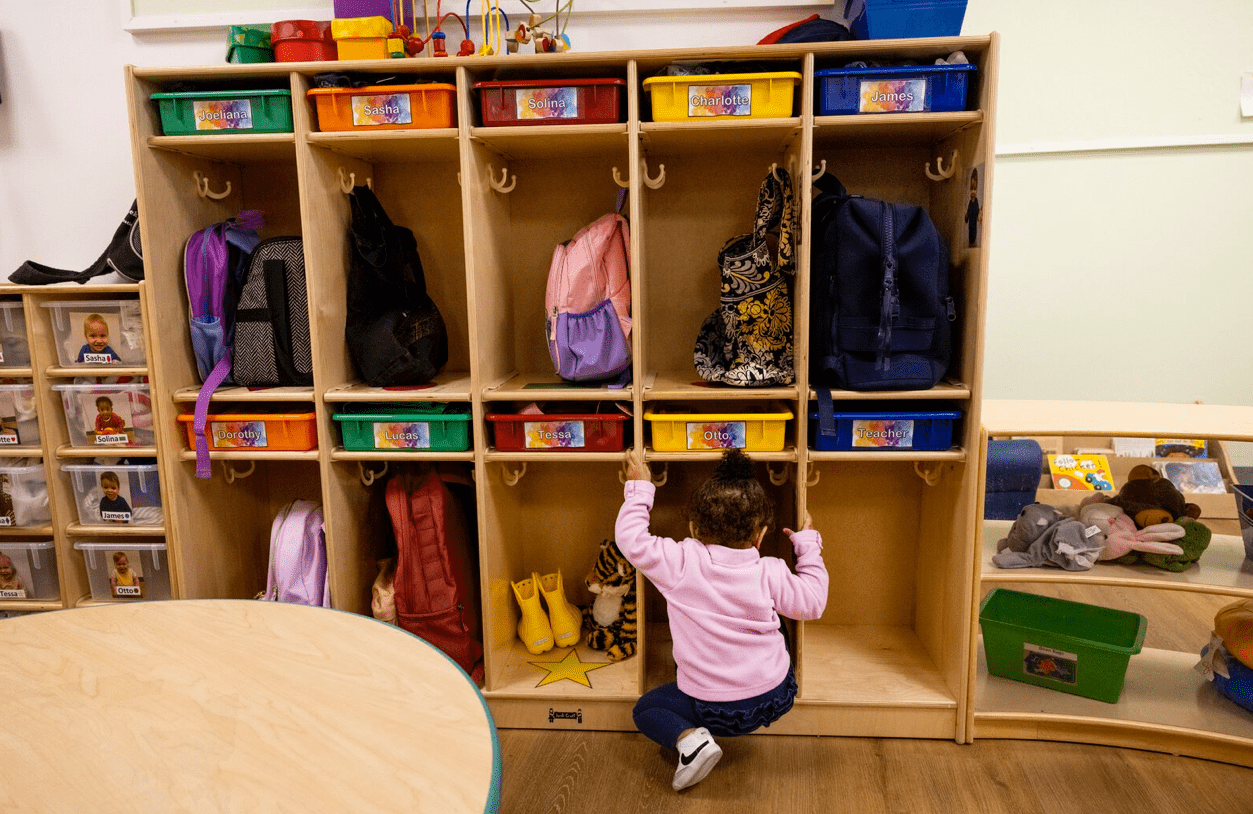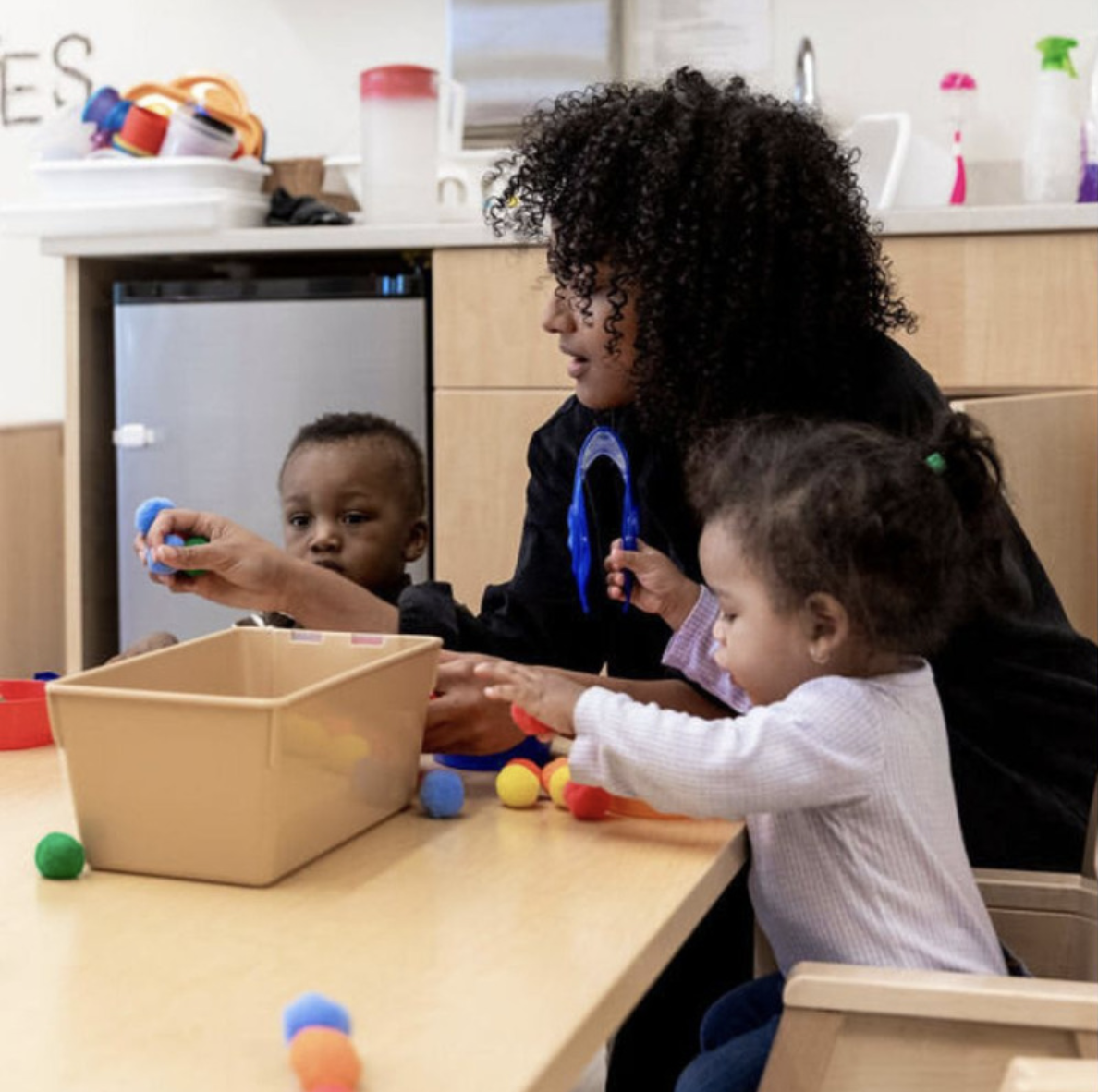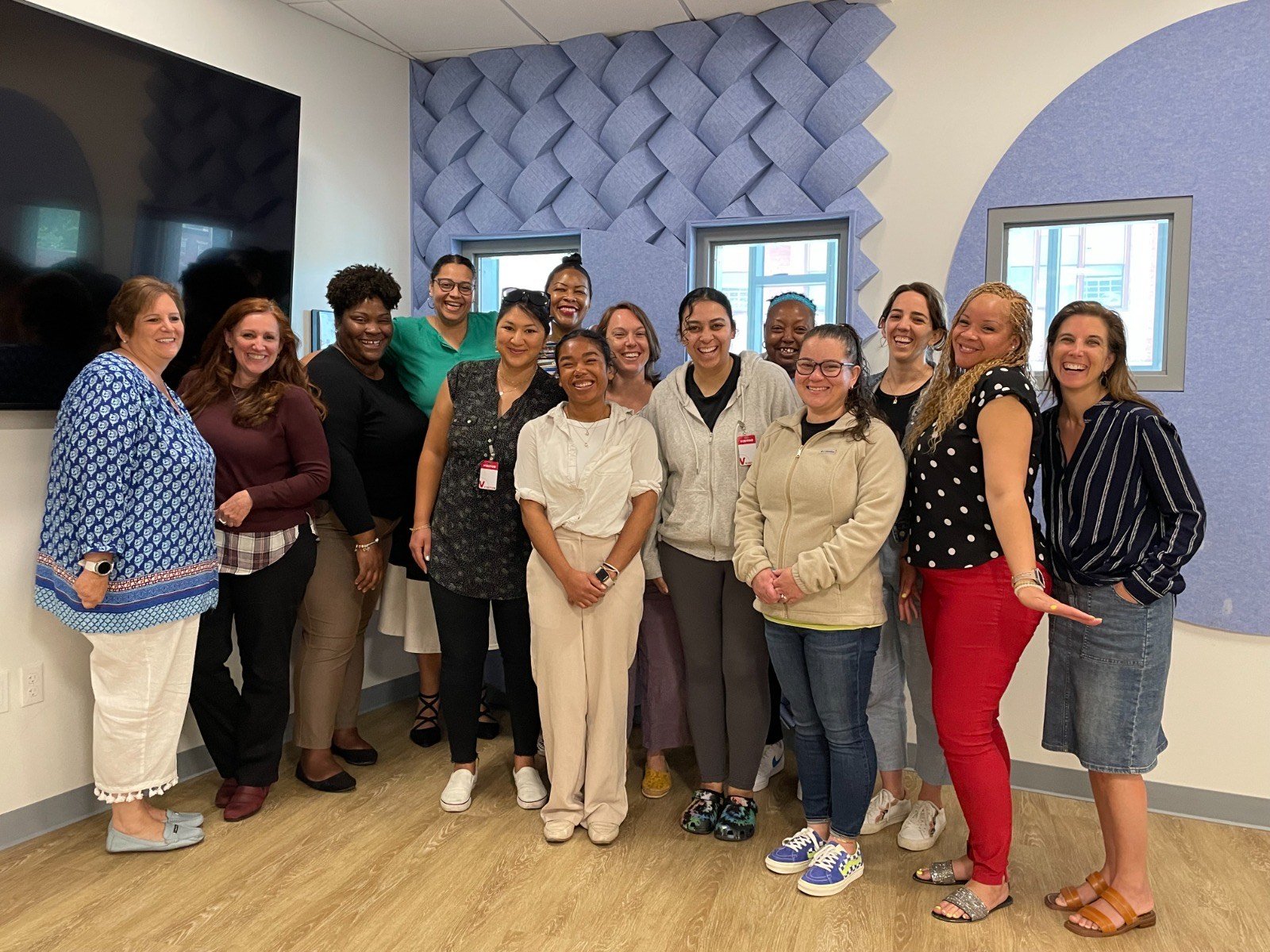
The Desktop
From the Desk of Neighborhood Villages

This Mental Health Awareness Month, Recognizing the Need For Behavioral Health Supports For Our Youngest Children
May marks the 75th annual Mental Health Awareness Month, and at Neighborhood Villages, we are using it as an opportunity to advocate for more support for children’s behavioral health needs and to provide an update on our work to address this critical issue.

Launching Our New Play-Based Toddler Curriculum, Co-Created with Educators
At Neighborhood Villages, we are committed to addressing inequity in the early childhood education field—and we know that begins with focusing on the needs of our youngest learners and their dedicated educators.


We Must Address the Child Care Crisis to Advance Racial Justice and Equity
Our nation’s broken child care system is one of the greatest drivers of racial inequality. It is a system based on unjustly free or low wage labor, built on the backs of women and predominantly women of color.

RECAP of the April EEC Board Meeting: Executive Order 625 and Workforce Development
At Neighborhood Villages, we prioritize keeping up with the policy landscape in the early education and care field, both across the country and in Massachusetts. That includes tuning-in to the monthly meetings of the Massachusetts Board of Early Education and Care (“EEC Board”), to stay apprised of updates and to identify opportunities for how we can work with government and other stakeholders to improve our early education and care system.

RECAP of the March EEC Board Meeting: Commonwealth Cares for Children (C3) and Child Care Financial Assistance Programs
At Neighborhood Villages, we prioritize keeping up with the policy landscape in the early education and care field, both across the country and in Massachusetts. That includes tuning-in to the monthly meetings of the Massachusetts Board of Early Education and Care (“EEC Board”), to stay apprised of updates and to identify opportunities for how we can work with government and other stakeholders to improve our early education and care system.

RECAP of the February EEC Board Meeting: Governor’s Budget and the Commonwealth Preschool Partnership Initiative
At Neighborhood Villages, we prioritize keeping up with the policy landscape in the early education and care field, both across the country and in Massachusetts. That includes tuning-in to the monthly meetings of the Massachusetts Board of Early Education and Care (“EEC Board”), to stay apprised of updates and to identify opportunities for how we can work with government and other stakeholders to improve our early education and care system.

Breaking down the costs of high-quality early education in Massachusetts
Our new report, High-Quality Early Childhood Education: Opening the Books on its True Costs, unpacks what goes into offering high-quality early learning — from teacher wages, to core operating expenses, to wraparound services for families.

Black History Month Reflections on Child Care and Education
During Black History Month, we celebrate the achievements of the Black women and men that came before us. However, we can’t properly appreciate the weight of those triumphs without acknowledging the exploitation and marginalization of Black people that has served as a backdrop in our country’s history.

Keys to selecting great children’s literature for the ECE classroom
Neighborhood Villages’s Toddler Curriculum is committed to the principles of developmentally appropriate practice, anti-bias education and social-emotional learning. One of the keys to bringing these important values together is thoughtful and intentional curation of children’s books for the toddler classroom.

RECAP of the January EEC Board Meeting: Consolidated Reimbursement Rates and Contract Procurement
At Neighborhood Villages, we prioritize keeping up with the policy landscape in the early education and care field, both across the country and in Massachusetts. That includes tuning-in to the monthly meetings of the Massachusetts Board of Early Education and Care (“EEC Board”), to stay apprised of updates and to identify opportunities for how we can work with government and other stakeholders to improve our early education and care system.

What is anti-bias education?
Dedicated educators work towards a more equitable future by practicing anti-bias education daily. By intentionally incorporating social-emotional skills into the curriculum, they provide students with a thoughtful and personalized education that recognizes and celebrates their unique identities.

RECAP of the December EEC Board Meeting: Consolidated Reimbursement Rates and Contract Procurement
At Neighborhood Villages, we prioritize keeping up with the policy landscape in the early education and care field, both across the country and in Massachusetts. That includes tuning-in to the monthly meetings of the EEC Board, to stay apprised of updates and to identify opportunities for how we can work with government and other stakeholders to improve our early education and care system.

Recent Improvements to Massachusetts Child Care Financial Assistance Program are Helping More Families Access Care
This fall, the Massachusetts Department of Early Education and Care (EEC) and the state legislature made significant strides in enhancing the Commonwealth’s Child Care Financial Assistance (CCFA) program, which provides public financial assistance to eligible low-income families seeking to enroll their children in care. These improvements will help to streamline eligibility and enrollment processes, improve user-friendliness, and ensure that all low-income and vulnerable families in Massachusetts have access to quality child care.

Toddler Curriculum: Guiding Intentional Family Engagement
The Neighborhood Villages toddler curriculum project is rooted in strengths-based practice and is founded on the belief that caregivers are the true experts on children’s development and needs. As a result, family engagement is an integral piece of the work. As children’s first teachers and keepers of their unique histories, traditions, and cultures, families are engaged in a manner that aims to be thoughtful and culturally sustaining.

Curriculum: Support for Educators, flexibility for children
With the support of the Lego Foundation, Neighborhood Villages is trying to change what an early childhood curriculum looks like. We deeply believe in play for its own sake, child-directed learning, and prioritizing toddlers' social-emotional development.

A co-created community resource: Elevating educator voices
"How do we create a curriculum that authentically serves the audience it is created for and where do we start?"
That was the question and puzzle that Neighborhood Villages sought to solve when creating an innovative, play-centered curriculum for toddlers.

How Neighborhood Villages is helping children and families through the migrant crisis
The Commonwealth of Massachusetts is facing an unprecedented crisis in its shelter system, which, for the first time, has reached its capacity. This population includes an estimated 5,000 under-school-age children (0-5). They are in need of nurturing, trauma-informed learning environments where they can play, seek comfort, and be in community with children and nurturing caregivers.

RECAP of the November EEC Board Meeting: Capital Grants, Subsidy Reimbursement Rate, and FY25 Budget Priorities
At Neighborhood Villages, we prioritize keeping up with the policy landscape in the early education and care field, both across the country and in Massachusetts. That includes tuning-in to the monthly meetings of the Massachusetts Board of Early Education and Care (“EEC Board”), to stay apprised of updates and to identify opportunities for how we can work with government and other stakeholders to improve our early education and care system.

Neighborhood Villages rallies with partners to fix child care at the Massachusetts State House
Today, Neighborhood Villages came together with parents, providers, educators, and partner organizations to support vital reforms in child care and early education at the Massachusetts State House.
